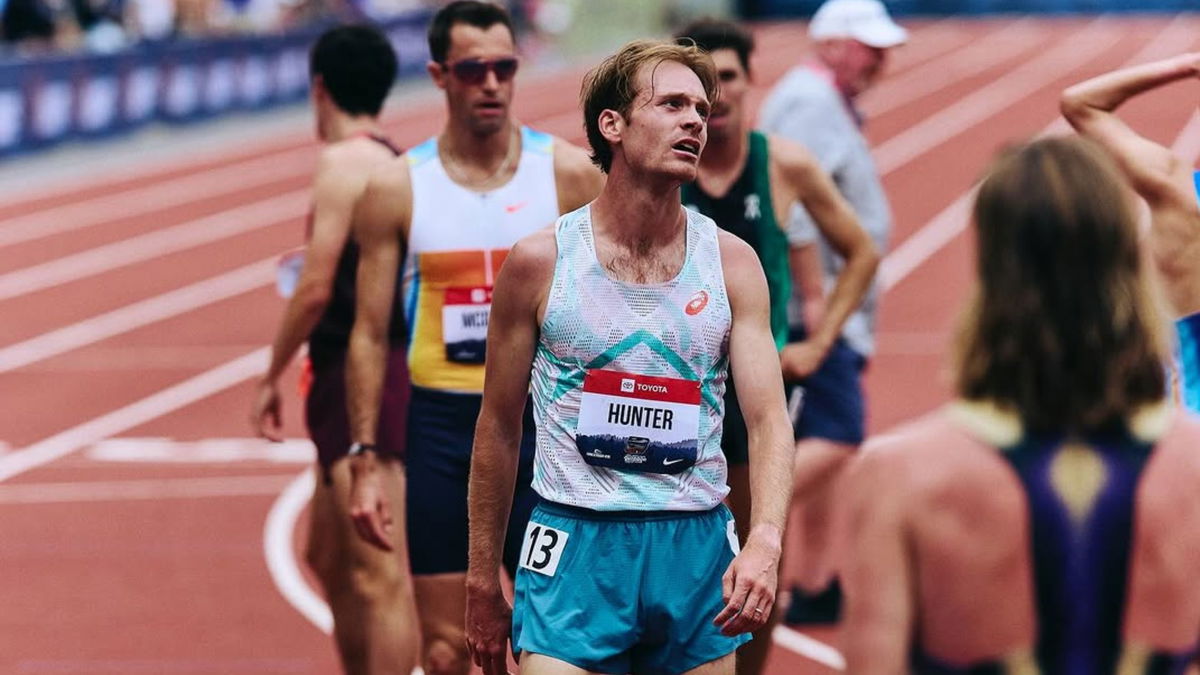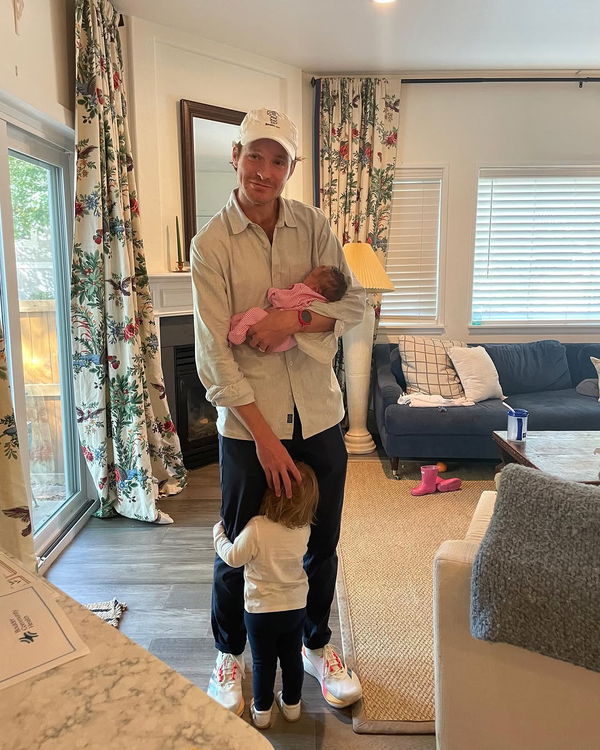
Imago
Drew Hunter (Image Credits: Instagram/@drewhunter00)

Imago
Drew Hunter (Image Credits: Instagram/@drewhunter00)
The 5th Avenue Mile returned to Manhattan this weekend with a string of gripping finishes that underlined both the power of redemption and the burden of reflection. Yared Nuguse rebounded from his Tokyo World Championships absence by storming to a 3:47.7 victory in his event debut on Sunday, outsprinting Parker Wolfe and Drew Hunter down the closing stretch of Fifth Avenue. Gracie Morris, a rising force in the women’s ranks, surged past Karissa Schweizer in the final 300 meters to seize the crown in 4:15.5.
Watch What’s Trending Now!
Yet amid these stirring contests, the story that lingered most came not from the winners but from Hunter, who crossed in 3:48.4 and then chose to speak less about contracts and podiums and more about the quiet fears and unexpected triumphs of fatherhood.
ADVERTISEMENT
Hunter’s performance placed him third behind Nuguse and Wolfe, but his reflections afterward shifted the conversation beyond racing splits. Just a few months back, Hunter disclosed in his newsletter that Adidas had offered him a reduced renewal, far short of what he believed he merited after nearly a decade with the brand. The former prep sensation, once signed as a teenager in 2016 to a long-term deal, ultimately agreed to terms with ASICS, though the specifics remain undisclosed. “Not even close to what I deserved,” he wrote of the Adidas proposal. That candid note revealed an athlete at a crossroads, still competing at a high level but aware of the shifting calculations that govern sponsorship in track and field.
What truly resonated in New York, however, was not the sponsor switch but the admission that Hunter had once feared the effect of family life on his running. When asked what risk had most shaped his career, he replied with striking honesty. “Yeah, I mean it’s funny that you ask that. I mean I think having a family, you know, is probably the biggest, you know…so I think there is that fear of oh maybe this will actually affect my running but for me it’s been the opposite,” Hunter said while in conversation with Citius Mag. He explained that his agent had once joked about the difficulty of training while losing sleep to newborns, yet Hunter insisted his results had only strengthened. “My last two years have been my two years and I have, you know, two kids under two and a half so for me like it’s been, you know, like a risk I took but that stuff paid off.”
ADVERTISEMENT
The context made the words even more telling. Hunter is now 28, an age where many distance runners wrestle with balancing peak form against the responsibilities of adult life. He already owns a national indoor title and a NACAC championship, and he has reached the top eight at a World Cup event. The fact that he could return to Fifth Avenue and hold his own against Nuguse and Wolfe while openly crediting his little daughters, Ella and Rosie, for grounding him marked a rare intersection of performance and perspective. “I wouldn’t change anything that I had, you know, with my children and everything,” he concluded, leaving little doubt that family had reshaped his ambitions as much as any training plan.
ADVERTISEMENT
🗣️ “My last two years have been my best two years. I have two kids – It’s been a ‘risk’ I’ve took, but it’s paid off. I wouldn’t change anything for that. My children are everything to me.”
After taking 3rd in 3:49 at the 5th Ave Mile, Drew Hunter shares about how he’s built his… pic.twitter.com/6MTcZuztL1
— CITIUS MAG (@CitiusMag) September 7, 2025
In that sense, the 5th Avenue Mile on September 7 offered more than a snapshot of closing speed. It revealed how athletes define risk and reward on their own terms. Nuguse proved resilient with a debut victory. Morris dethroned a defending champion. Wolfe signaled his intent with a near win. And Hunter, third on the results sheet, left perhaps the strongest imprint by showing that fear of fatherhood had given way to gratitude. For an athlete once measured by contract figures and stopwatch readings, it was a reminder that some of the most important victories occur beyond the finish line. Drew Hunter, now a father of two, pursued the BOLDERBoulder as both a tribute to his father’s 1980 triumph and a step in shaping his own career.
ADVERTISEMENT
Drew Hunter raced to extend his father’s legacy while shaping his own path
Drew Hunter carried into the BOLDERBoulder a story that extended beyond the starting line, one shaped by both legacy and responsibility. Now a father of two daughters, he had chosen to pursue a course that echoed his father’s achievements from 1980, while also seeking to establish his own footing in the sport. The race, familiar to his family in memory, had become a stage upon which he could balance history with his own ambitions.

Imago
Drew Hunter with daughters Ella and Rosie (Image Credits: Instagram/@drewhunter00)
His father, Marc Hunter, had once captured victory there, a feat that remained vivid in recollection. “It was amazing on two fronts, because I wasn’t supposed to run the race, so I was surprised to be in first,” he recalled, his voice still carrying the awe of that day. He remembered the sound of the crowd rising as he approached Folsom Field, the stadium echoing with recognition. That vision was what he now wished for his son, to witness Drew cross into the same arena, watched by thousands, as part of a tradition that had shaped their family’s connection to running.
ADVERTISEMENT
Drew did not regard the occasion with trepidation, nor did he treat his father’s prior success as a shadow to escape. He explained simply, “I will be running to win,” while adding that the narrative itself, whether or not it culminated in victory, was meaningful. For him, the presence of his daughters, the memory of his father’s triumph, and the chance to inscribe his own name upon the event combined to form a singular motivation. “It’s just an honor to be there,” he said, framing the race not as a burden, but as an opportunity to extend a family journey into another generation.
ADVERTISEMENT
ADVERTISEMENT
ADVERTISEMENT
ADVERTISEMENT